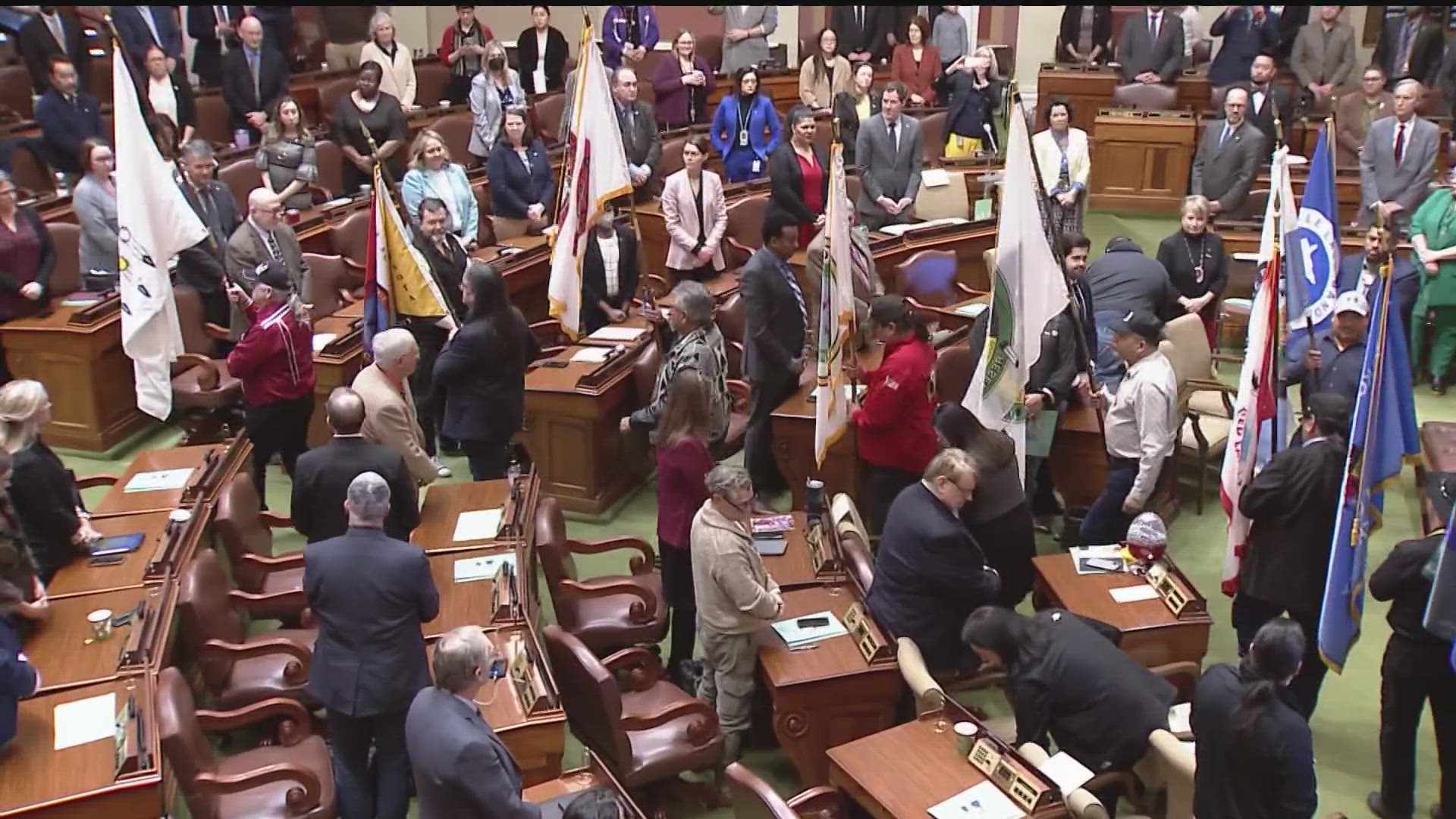ST PAUL, Minn. — Minnesota's 11 federally-recognized tribal nations were front and center at the State Capitol Monday, in an event highlighting the status of Minnesota's Indigenous population.
A drum circle provided the soundtrack as tribal leaders marched into the House Chamber bearing the flags of the 11 Native American communities to kick off Sovereignty Day 2023. The House hosted the first such event in 2019, but Monday marked the first time the Senate took part.
Legislative leaders endorsed the concept in hopes of bringing lawmakers up to speed on the histories of Minnesota tribes and the challenges they still face, as well as their expectations of state government.
"It's a way to provide that opportunity to learn about our tribes, to understand the issues today, and figure out a way we can work together and do some partnerships," Sen. Mary Kunesh of New Brighton, a Standing Rock Lakota descendant, told KARE.
"It’s just a really joyful day. I can’t tell you how proud I was to listen to the leaders share their viewpoints of their communities and the work they’ve been doing on behalf of their own communities."
Prairie Island Indian Community Johnny Johnson reminded lawmakers how destitute his own tribe was before Treasure Island Casino entered the picture.
"We had nothing. We all lived in either a one-room shack, or somebody got lucky and had a house that maybe had two bedrooms in it," Johnson told legislators.
"We fight every day for survival. I wish we had thousands and thousands of acres of land so that we could get into other businesses."
Mille Lac Band of Ojibwe Chief Executive Melanie Benjamin said her community has stressed education and is making progress year by year.
"I want to be able to see my children sitting out in the audience and making laws that benefit all of us."
Kevin DuPuis, the chair of the Fond du Lac Band of Lake Superior Chippewa, said his ancestors were forced by the European settlement wave to migrate from the eastern U.S. to Minnesota.
"Tribal governments have to defend their borders on a daily basis. Everything has been taken from us at one point in time — land, blood, our children, our way of life."
Red Lake Chairman Darrell Seki Sr. talked about how resilient his people have been through the ages.
"We are not Indians. We are Anishinaabe people. That man that got lost — he never discovered us. We were already here. And we’re still here. We always will be here!"
Monday's event came on the hills of both chambers of the legislature giving overwhelming support to the Minnesota Indian Family Preservation Act, to take the add protections that will be lost if the US Supreme Court overturns the federal Indian Child Welfare Act.
"These are laws and rules and practices to ensure that our kids, our Native kids, are no longer removed from their families at those high percentage rates that they have been traditionally," Sen. Kunesh explained.
"You have to make efforts to keep those families together. Is it because there isn’t food? Let’s get food in that house. Is it because the House isn’t heated? Let’s find ways to get that house heated."
Kunesh is one of four Indigenous legislators who've actively worked to raise awareness of the plight of Native American persons in Minnesota. Lt. Gov. Peggy Flanagan, a member of the White Earth Nation of Ojibwe, is the first Native American ever elected to a statewide office.
Flanagan Monday talked about efforts in the past four years to solidify relationships with tribal governments, and to set up a permanent Office of Missing and Murdered Indigenous Relatives.
"Together we have shown that tribal communities are still here and aren't going anywhere," Flanagan told lawmakers and tribal leaders.
"Together we have accomplished so much and I'm excited to think what we can accomplish in the next four years."

